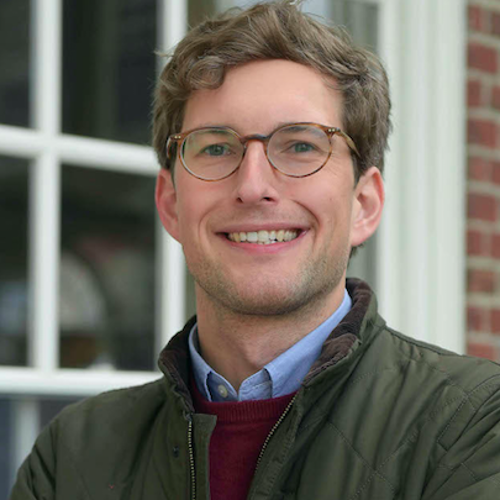Raymond De LucaAssistant Professor, Russian Studies
Education
Ph.D., Harvard University, 2022
M.A., Middlebury College, 2018
B.A., Haverford College, 2014
Biography
Raymond De Luca is an Assistant Professor of Russian Studies in the Department of Russian and East Asian Languages and Cultures (REALC) at Emory University. He received his Ph.D. in Slavic Languages & Literatures—with a secondary field certification in Art, Film, and Visual Studies (AFVS)—from Harvard University. Prior to joining the faculty at Emory, Dr. De Luca held an assistant professorship at the University of Kentucky in the same field and had been awarded an Interdisciplinary Dissertation Completion Fellowship from Harvard’s Mahindra Humanities Center. He was also the recipient of a Fulbright Scholarship to Russia.
Dr. De Luca specializes in Soviet and Russian cinema, with complementary interests in animal studies, philosophy, intellectual history, political theory, ethics, and ecology. His first book, And the Cow Burned: Animals and Philosophy in the Cinema of Andrei Tarkovsky, argues that Tarkovsky’s cruel treatment of animals—exemplified by the cow he lit on fire in his second feature film—exposes an ethical blackhole at the center of his creative project. Integrating Tarkovsky’s body of work into the history of animal cruelty on screen, Dr. De Luca explores why Tarkovsky’s otherwise beautiful images so often backslide into grisly violence.
Additionally, Dr. De Luca is currently at work on a second book manuscript, tentatively titled The New Soviet Animal: Re-Imagining the Human-Animal Divide in Revolutionary Russia. This project studies how animals were reconceptualized in Soviet culture after the October Revolution of 1917. It demonstrates how Soviet ideologues turned to animals as allies of the working class who could participate in—and mutually benefit from—the building of communism. Soviet artists, intellectuals, and starry-eyed dreamers pioneered a philosophy of cross-species egalitarianism that reconceived the human-animal divide as had been inherited from the French Enlightenment.
As the book review editor for the Journal of Soviet and Russian Cinema Studies and a regular guest speaker at universities and conferences, Dr. De Luca maintains a highly engaged and public-facing relationship with his professional field and broader intellectual community. His work fuels his teaching at all levels of the curriculum, and he encourages his students to develop original research ideas and projects of their own, which can be expanded for conference presentations, travel grants, graduate study, and publication.
Selected Publications
“The Shepit’ko Sky: Larisa Shepit’ko’s Meteorological Cinema of Openness, Immersion, and Flux,” in The Cinema of Larisa Shepit’ko (University of Edinburgh Press, 2024), 223-44.
“Mongrelizing Interpretation: The Animals in Contemporary Hungarian Cinema,” in Cinema and the Environment in Eastern Europe: From Communism to Capitalism (Berghahn Books, 2023), 158 – 74.
“The ‘Black’ Man from Nowhere: Blackface in Post-Stalinist Cinema,” Slavic and East European Journal 65.4 (2021): 641 – 61.
“Hairy Screens, Filmic Follicles: The Uses of Hair in a Selection of Films by Claire Denis,”Canadian Journal of Film Studies 30.1 (2021): 1 – 24.
“The Soviet Flâneur-Turned-Marathoner: The Movement of Characters and the Character of Movement in Georgii Daneliia’s 1970s Films,” in Soviet Films of the 1970s and Early 1980s: Conformity and Non-Conformity Amidst Decay (Routledge; 2021), 97 – 116.
“Tarkovsky’s Cine-Safari: Animal Bodies in the Cinema of Andrei Tarkovsky,” Slavic and East European Journal 64.3 (2020): 511 – 37.
“The Still Life(s) of Chantal Akerman: Akerman’s Moving Images and Dutch 17th-Century Painting,” Dutch Crossing: Journal of Low Countries Studies (2020).
“Tarkovsky Screens Hemingway: Andrei Tarkovsky’s First Student Film, The Killers,” Studies in Russian and Soviet Cinema 13.2 (2019): 172 – 81.
“A Nobleman Should Be Clean and Smell Good: Olfactory Visuality and Haptic Space in Aleksei Gherman Sr.’s Hard to be a God,” Studies in Russian and Soviet Cinema 12.3 (2018): 177 – 94.
